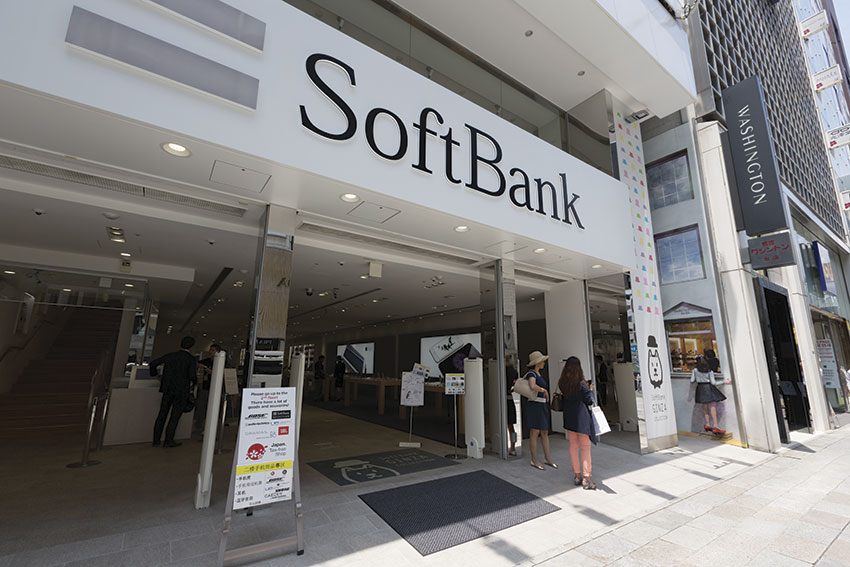Japanese officials say the country is experiencing an innovation rebirth that will be showcased at the Tokyo Olympics in 2020, while an improving business environment is expected to bring more foreign firms to the capital

Japan aims to use the 2020 Tokyo Olympics to showcase a host of new technologies, demonstrate how the country and the nation’s capital has pulled itself out of two decades of stagnation, and is now on a launch pad for global business success.
The Tokyo 1964 games showed how Japan had rebuilt itself after World War II’s devastation and was becoming an economic and technology superpower. It impressed visitors with marvels such as its speed record-breaking bullet train, put into service nine days before the opening ceremony, and the transformation of the city with new parks, highways and two subway lines.
In the following years, Japanese companies continued to beat their global market peers with advanced mobile telephones, color televisions, computer game consoles, mechanised toilets, memory chips, videocassette recorders, the Walkman, CDs and DVD players.
Yet despite this innovation and early lead, in recent years Japan failed to further develop and adapt many of its products for other regions, allowing rivals to overtake. While notable exceptions remain–like Toyota, Honda, Nissan and Sony–a much larger body of Japanese innovations and companies failed to take off, and now even household names like Panasonic and Sharp struggle to keep up with fleet-footed firms such as Apple, Samsung and Google.
Many Japanese officials however, are confident the country is experiencing a rebirth, and that Tokyo is on the path to regaining its status as Asia’s most innovative and dynamic city, driven by companies like Softbank, one of Japan’s top three phone carriers that has also launched a humanoid robot, teamed up with Honda to make smarter cars and just bought out the company that designs the chips for most smartphones–including the iPhone.
The Olympics could be the trigger for a new wave of products and technologies, ranging from consumer electronics, simultaneous translation and mobile phone apps, hydrogen-powered autos, robotics, and even the way people watch live events, and that this will be followed by the prize of global expansion of these products.
Time will tell
The 1964 games were the first filmed and transmitted in color, albeit only in part. The 2020 event is expected to deploy new 8K resolution imaging technology using 16 times as many pixels as high-definition displays now, offering a sharper and deeper moving image than ever before. The increased visual clarity could in time be used by hospitals to make better diagnoses and perform surgeries that might otherwise be impossible.
“I think the TPP, Olympics and Paralympics are the new catalysts that will help boost our economy,” says Yuriko Koike, elected at the end of July as Governor of Tokyo after a long political career including stints as environment and defense minister, referring to the Pacific Rim partnership deal agreed early this year.
Ms. Koike agrees that Japan still has far to go in many areas of reform in order to flourish, including persuading people to use their vacation entitlement as opposed to relying only on Japan’s numerous public holidays (Japan tops the list in major economies for the number of official days off).
More important is ensuring that women play a more important role in business and politics. Just 9.7% of members of Japan’s parliament are women, compared with 18.8% in Saudi Arabia, she notes.
Although Prime Minister Shinzo Abe’s policies towards empowering women are contradictory–she argues–on one hand calling for more women to take salaried jobs but on the other, letting women have three years off work after giving birth.
Mr. Abe, architect of monetary and fiscal packages and social reforms aimed at encouraging innovation, and an enthusiastic backer of the Olympics for the economic boost they may provide, has a personal connection to the 1964 games–his grandfather was prime minister at the time.
“I would like to see more sustainable technology originating from Japan. Japan can create that kind of technology and secure the world environment as well as creating employment for many parts of the world,” says Ms. Koike.
The government’s “Revitalization Strategy” adopted last year targets a doubling of inward foreign direct investment to 35 trillion yen ($346 billion) by 2020, measures to raise the number of women in the workforce, and to double the number of foreign staff in the IT and communications sector to 60,000.
Ms. Koike and other government officials hope that reforms, and the Olympics, will attract more foreign investment and persuade more foreign companies to set up shop in Tokyo, taking advantage of the capital’s 13 million-strong population, and dynamic market. Tokyo, she says, offers investors a range of tax incentives, financial support and a streamlined bureaucratic processes at its newly established special economic zones. The capital also aims to turn the Tokyo International Financial Center into a financial hub on par with New York’s Wall Street and The City of London.
Investors can also benefit from Tokyo’s incredible talent pool, spilling out from the capital’s 138 universities and numerous research institutes. Japan’s education levels are higher than any European nation and the second-highest in the world after South Korea. The Global Competitiveness Report for 2015-2016 ranks Japan ninth for quality of math and science education and third for overall availability of scientists and engineers, stresses JETRO, the Japan External Trade Organization.
Furthermore, Tokyo is no longer a high-cost city, with office and house rents low compared with neighboring Hong Kong and Singapore, and Tokyo managers’ salaries lower than those in Singapore, JETRO says.
Mr. Abe’s show-stopping high-tech appearance as Super Mario at the Rio Olympics closing ceremony gave a taste of what to expect in Tokyo in 2020. One thing is for sure, you can count on the presence of fleets of multilingual robots.
0 COMMENTS